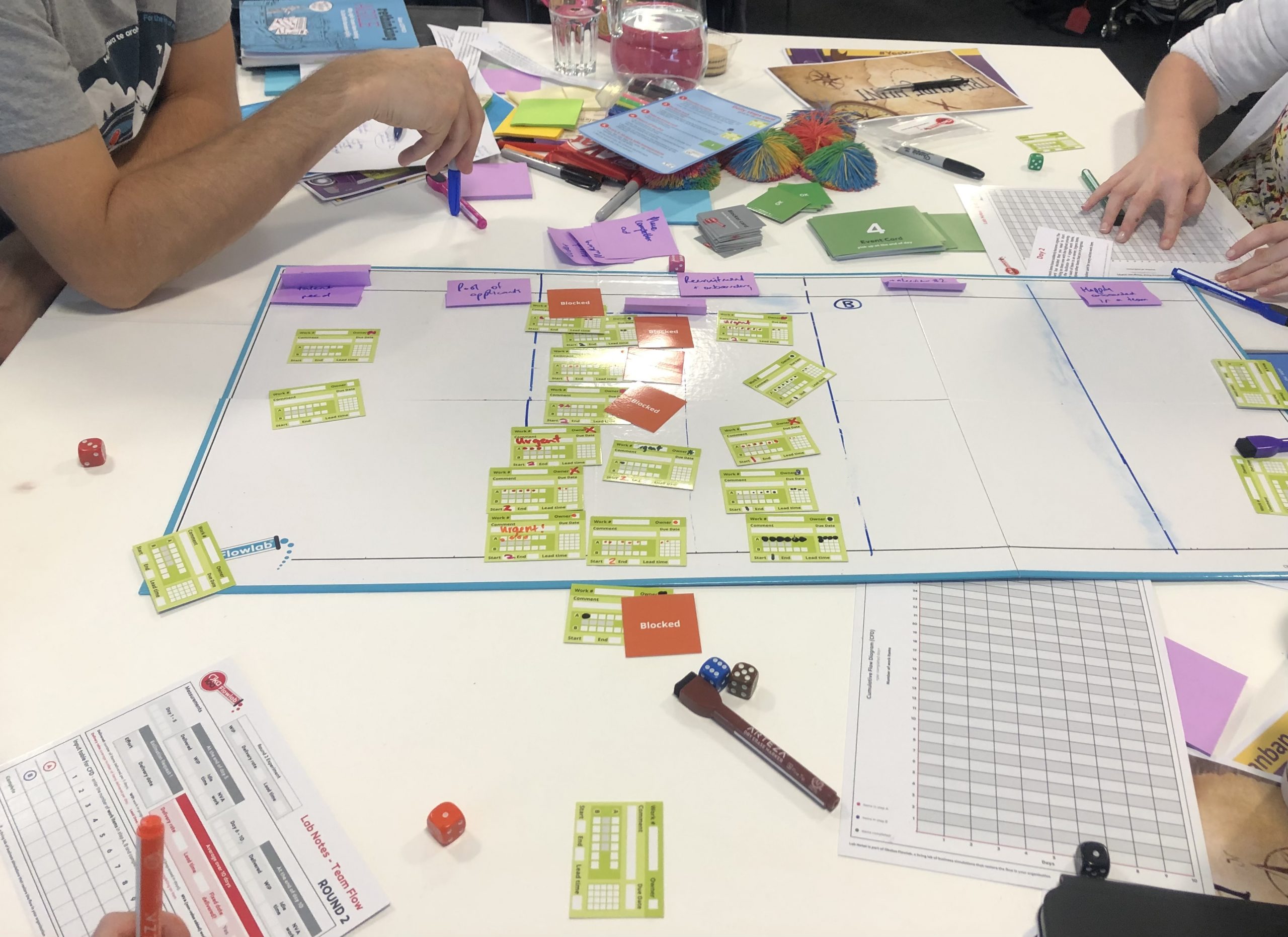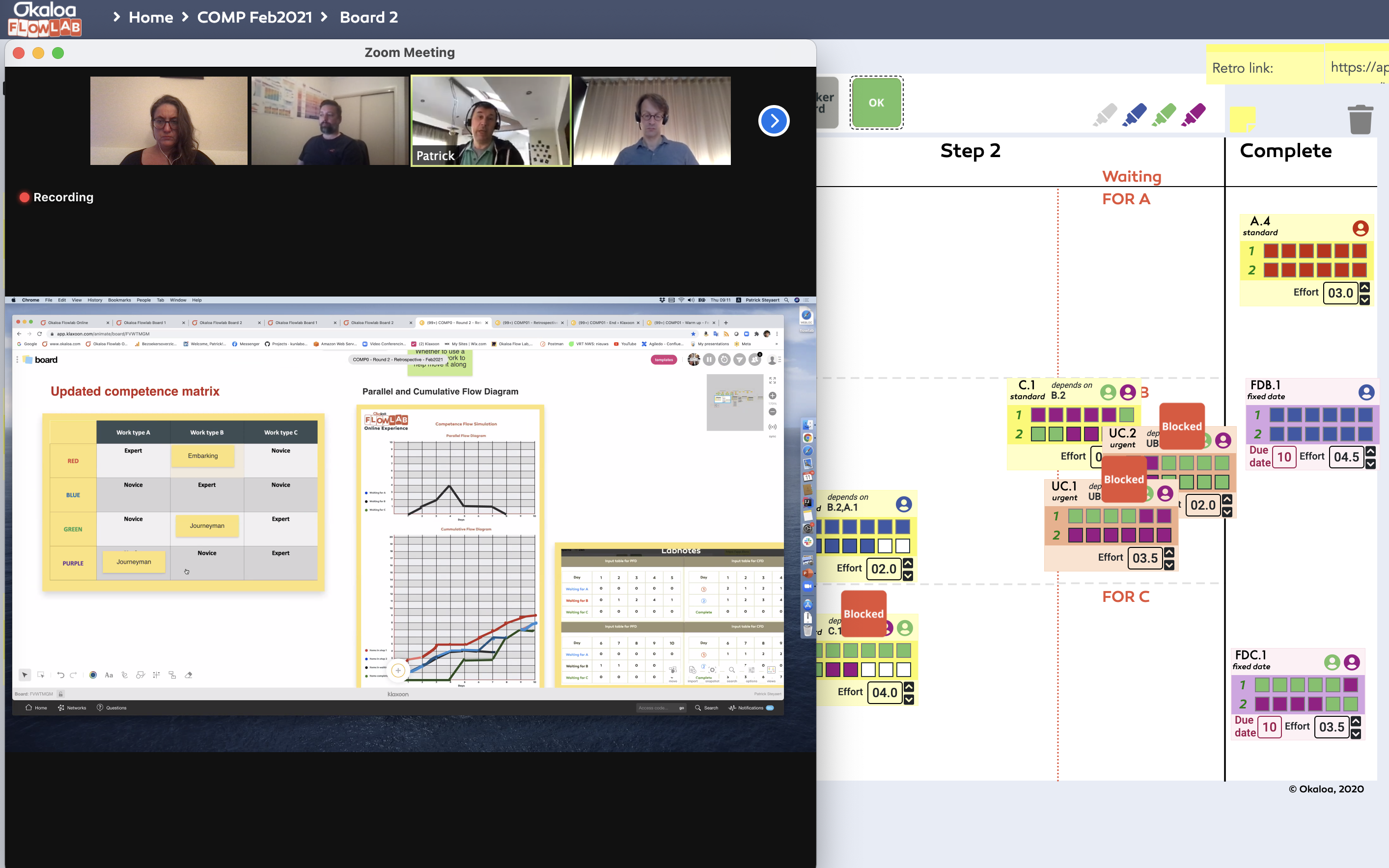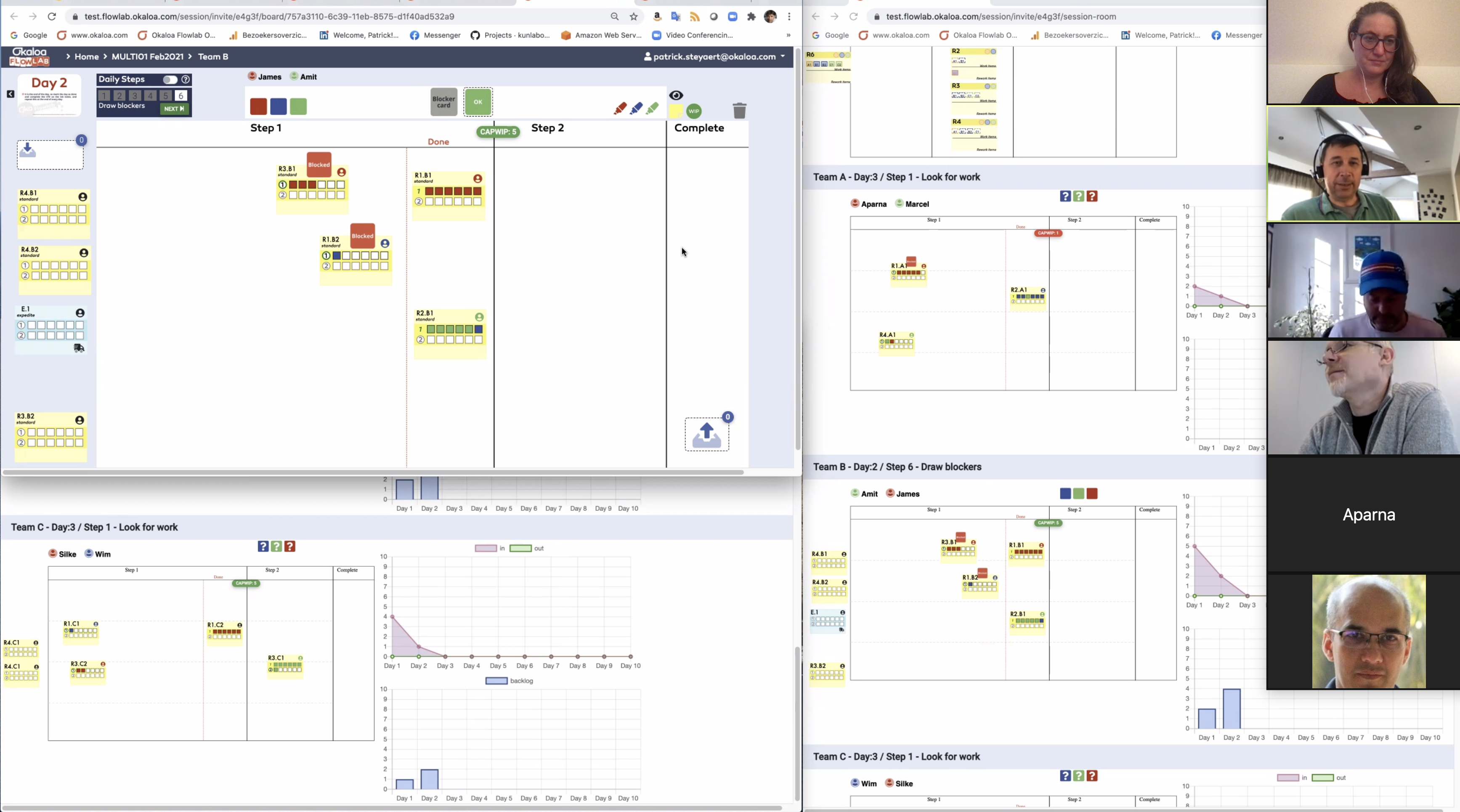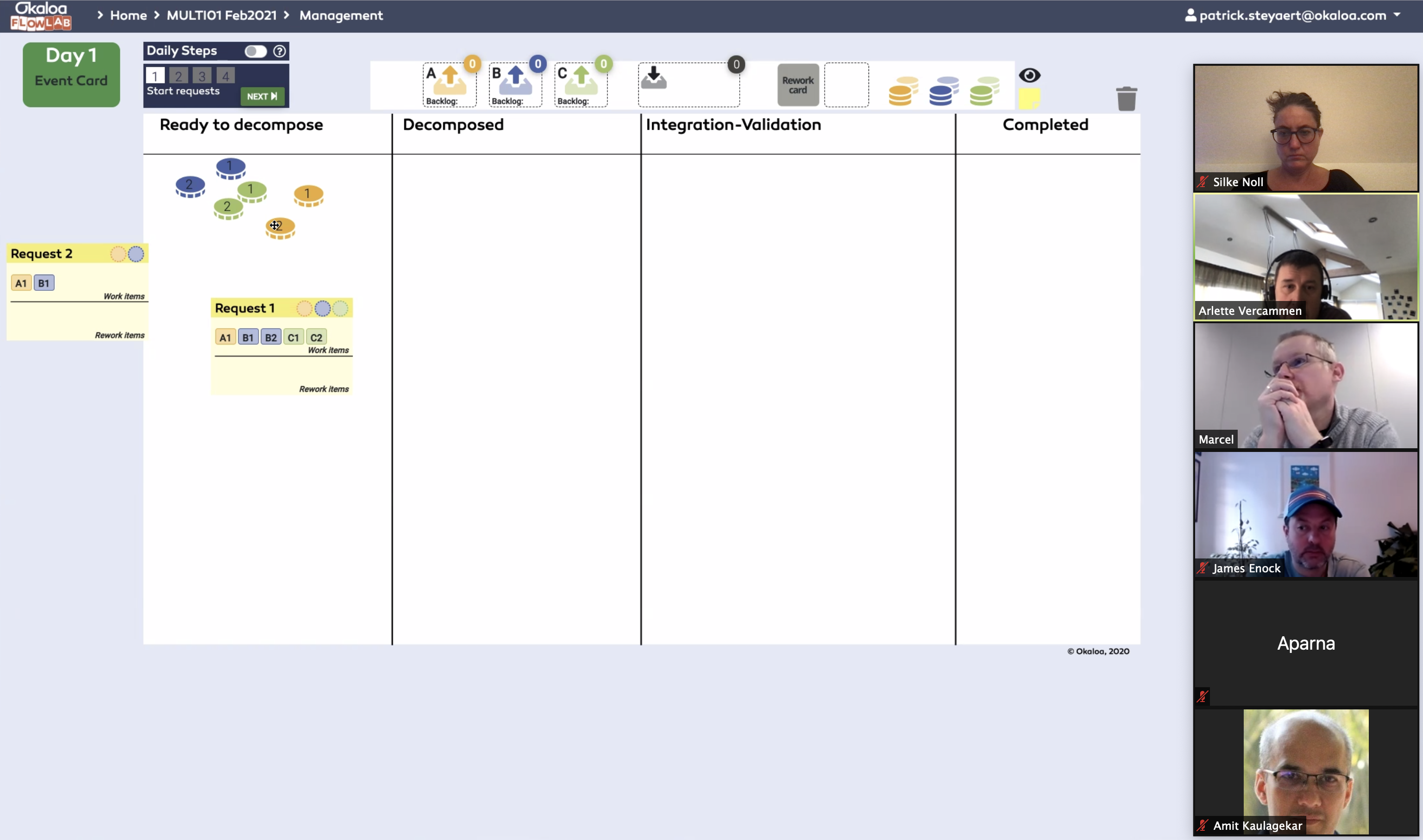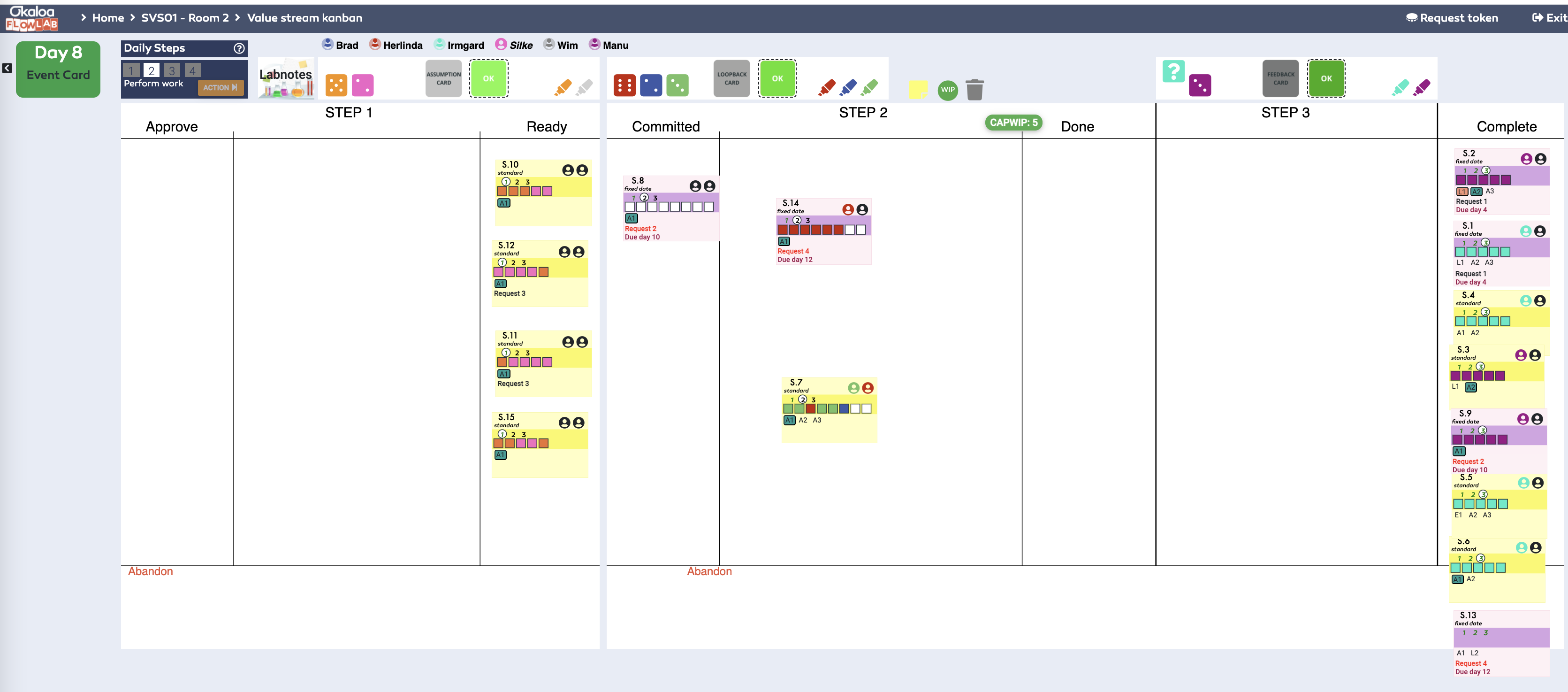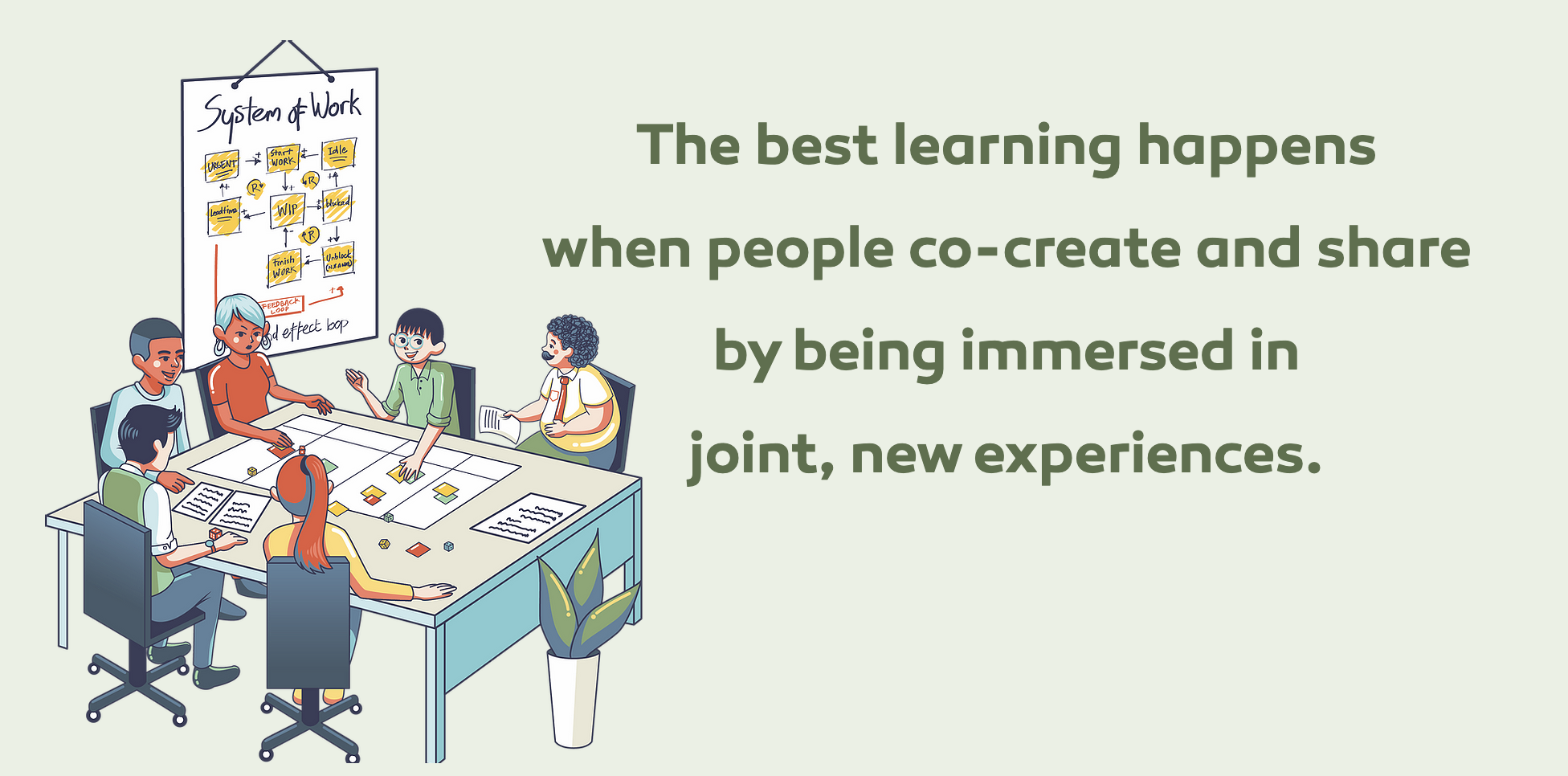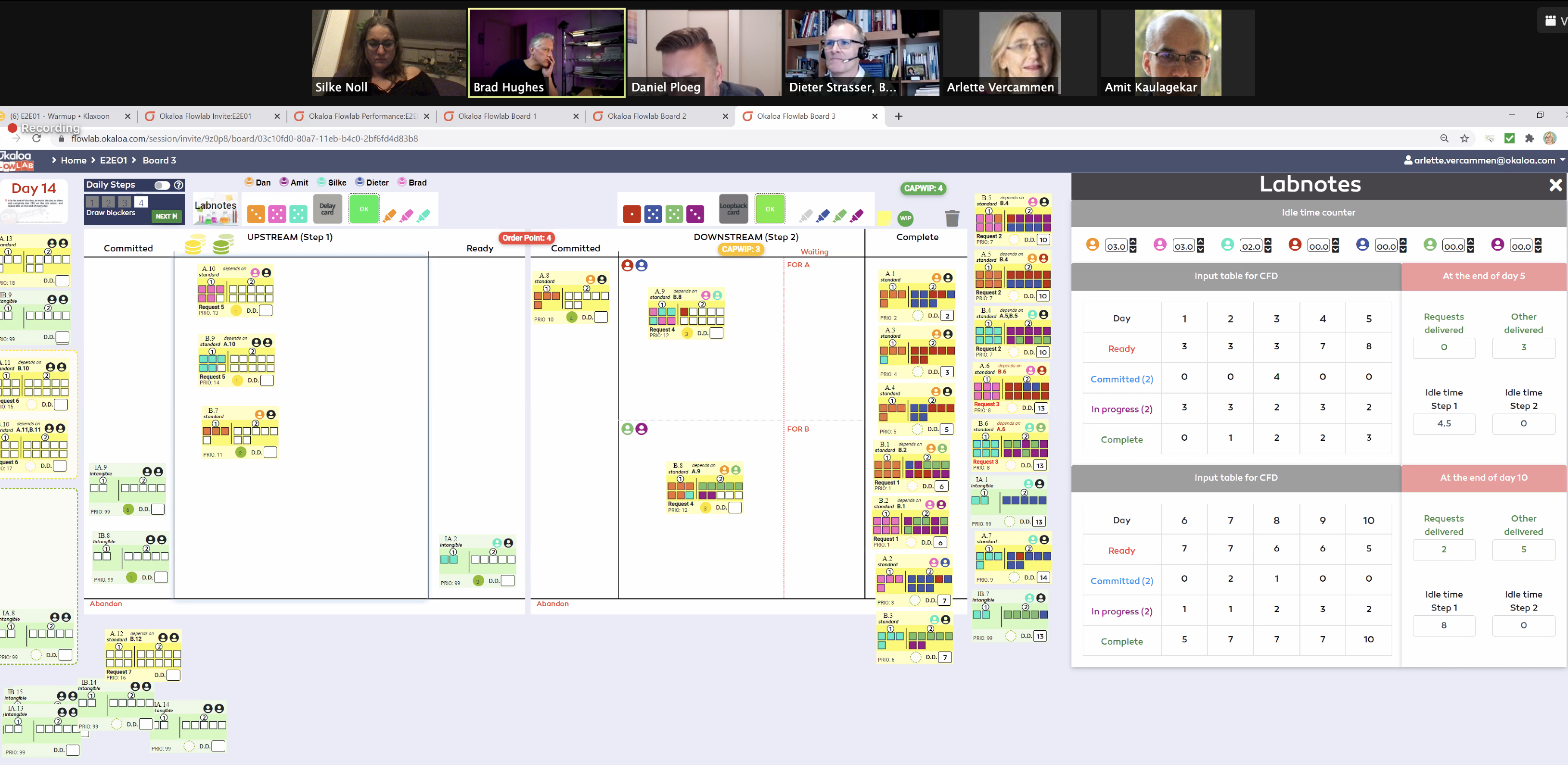Hier geht’s zu dieser Seite auf Deutsch: Silke Noll – Trainings und Consulting
Kia ora!
I’m based in New Zealand and work internationally between Aotearoa and Europe. I support organisations across New Zealand and Australia throughout the year – onsite and remotely. Originally from Germany, I’ve made New Zealand my home for more than ten years and sometimes spend parts of the European summer collaborating with clients across the region – while also catching up with family and friends. I work in English, German, French, Italian and Spanish – supporting multinational teams across Europe and Australasia.
I’m an Accredited Kanban Trainer with Kanban University and a Certified Intercultural Trainer. With 25+ years of experience across investment and retail banking, insurance, logistics, government and tech, I’m a Flow expert as well as an agile Project Delivery and Portfolio Management specialist.
As New Zealand’s only Accredited Kanban Trainer, Kanban Coaching Professional and Kanban Product Professional, I help organisations deliver fit-for-purpose products and services at the right time – from strategic intent through delivery to customer impact. I’m the founder of the Kanban New Zealand meetup group and YouTube channel.
I use Kanban as an evolutionary change management method – not a rigid framework – adapting practices and principles to each organisation’s unique culture, constraints and context to create sustainable improvements in delivery and collaboration.
I’m also a three-time published intercultural author and certified trainer, with a strong focus on how culture and context shape how people work, communicate and build trust. One of my books has also been published in English. For me, both Kanban and intercultural work are about reading the system, respecting context and evolving it – not applying one-size-fits-all solutions.
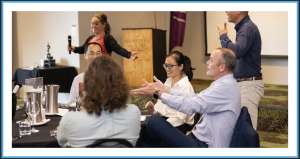
With a background in financial markets and structured financial products, I’m comfortable in fast-paced environments with high ambiguity, risk and regulatory pressure – I can build alignment, facilitate decision making and translate seamlessly between business and technology.
This combination of portfolio-level flow, deep Kanban expertise, intercultural competence and a solid financial-markets background enables me to work credibly with executives, teams and customers – and to connect strategy, delivery and culture in ways that make change stick.
If you’re looking to connect strategy, delivery and culture – and improve how work actually works across teams, without the framework theatre – let’s talk.
What I bring
- Flow & Delivery Leadership – improving end-to-end flow from strategic intent to customer impact; portfolio alignment and sustainable delivery across multiple teams and services
- Context-driven Kanban – Kanban as an evolutionary change management method; real improvement without rigid frameworks; tailored to organisational culture
- Intercultural Competence – certified intercultural trainer and published author; expertise in communication, trust, leadership and psychological safety across cultures
- Cross-team Coordination & Dependency Management – making interconnected work visible, reducing blockers and improving delivery across boundaries
- Financial Acumen – early career in fixed income trading, structured financial products and banking consulting; strong value & risk-based decision making
- Diagnostic & Turnaround Capability – rapidly assess systems, visualise work, restore predictability, reduce overburdening, and rebuild delivery confidence
- Community Contribution – founder of Kanban New Zealand, co-organiser of Kanban Australia & NZ Conference; active voice in advancing ways of working
- Evidence-based Improvement – meaningful flow metrics and transparency enabling clearer decisions and genuine organisational learning
How I work
- Build shared clarity from strategy through to delivery
- Improve coordination and collaboration across teams and boundaries
- Reduce stress and unnecessary effort – healthy pace, sustainable flow
- Facilitate outcomes-focused conversations with inclusive tools and methods
- Create safe spaces where people can speak up, learn and try new things
- Help change to land quickly – useful improvements in weeks, not years
- Translate between business, delivery and culture to align expectations
- Use meaningful metrics to support better choices, not to control people
Please find below more information on Kanban and intercultural training. Here you can book a 45 minutes mentoring / consulting / coaching zoom call to understand how Silke might be able to help with Kanban / Agile / ways of working and intercultural topics. If you are seeking advice on immigrating to New Zealand and are interested in the current market and cultural topics (no visa advice!!!), please book this link for a 30-minutes zoom call for only €49.90. On Silke's accomodation and travel page you can find lots of advice for your NZ travels, especially about Wellington and the North Island. Advice that you wouldn't normally find in your travel guide, and that don't follow the typical route almost every NZ tourist follows. Among other things unique cafés and restaurants, NZ podcasts, travel literature and the newest guides, art map and craft beer trail, boutique wineries, tramping (hiking) and biking, tips on payment options, some great NZ TV documentaries, and much more. If the advice is not enough and you don't know where to start with planning your travels, you can book an individual 30-minutes zoom call for €49.90 with me. After the call, you'll be able to get on your own research a lot more focused and customised to your own liking.
Upcoming Kanban classes (all classes are also available as inhouse training)
- 05/02/26 Team Kanban Practitioner (full day during the week)
- 04-05/02/26 Flow Manager online (two days during the week)
- 12/02/26 Scrum Better with Kanban (full day during the week)
- 18-19/02/26 Kanban System Design online (full day during the week)
- 13-14/04/26 Kanban Systems Improvement online (full days during the week)
- 13-16/04/26 Kanban for Design and Innovation (full days during the week)
- 16/04/26 Kanban for Design and Innovation extension (fullday during the week)
- 16/04/26 Scrum Better with Kanban (full day during the week)
- 08-09/06/26 in Berlin timezone Team Kanban Practitioner online (afternoon during the week)
- 15-16/06/2026 in Berlin timezone Flow Manager online (two days during the week)
Recommendable Kanban-related books (you can find books in German on this page): Upstream Kanban: Tools for Demand Managers (Better with Kanban) (2025). Anything you need to know to manage your "backlog space" better. Managing your upstream is the secret to a better delivery. Discovering Kanban (2023) from the founder of the Kanban Method. A very personal story from the origins and evolution of the Method, to why it is what it is today. Fit For Purpose 5th Anniversary Edition: Synthesizing Customer Experience with Strategy for Accelerated Business Results (2023). Some different approaches to Product and Customer Experience. Kanban Maturity Model: A Map to Organizational Agility, Resilience, and Reinvention (2020). A customer of mine once called it the best business book on the market. This is not about the maturity of the Kanban Method; it's about organizational maturity.
Intercultural training: Key training, coaching and consulting aspects:
- Culture specific training: Germany, New Zealand, Australia, Pacific Islands, France, Italy, Spain, UK
- Cultural awareness training and coaching
- Individual coaching, also over a longer period of time, mostly new immigrants to Oceania
- Teambuilding
- Outcome-focused, effective facilitation of cultural change
- in teams (Agile transformation, international M&As, etc.).
- on management level through leadership styles.
- with respect to corporate goals (financially and strategically), including buy-in through all organizational levels.
Current, pervious and examples of intercultural courses (all classes are also available as inhouse training)
- Cross-cultural competency New Zealand, virtual in English, 6x2hours.
- Auf Anfrage: Interkulturelles Training Neuseeland, online in deutscher Sprache, 6×2 Stunden.
- Intercultural awareness training – your start into intercultural agility.
- 03/06/24 in Berlin: Intercultural awareness training – your start into intercultural agility.
- 01/11/24 in Sydney: Intercultural awareness training – your start into intercultural agility.
- customised intercultural training (see above for specialist areas)
Here is a brand new book (January 2025) Silke has contributed to from a New Zealand perspective: Global Cultural Interplay: Elevating the Art of Buiness Success Across Cultures.
Okaloa Flowlab
- Okaloa Flowlab Teamflow simulation (in-person and virtual version):
Through simulating a conventional work environment that reflects a mechanistic mindset characterised by a focus on resource efficiency, command and control and specialist workers, participants experience which roadblocks need to be overcome. As the team is taking its first baby steps into agile, they will experiment (in 2 or 3 rounds) with policies and practices (e.g. pull of work, cadences, limiting WIP) that enable collaboration, get the team into flow, and allow an agile mindset to emerge. Weaved into the simulations they will discover the fundamental difference between resource efficiency and flow efficiency.
- Okaloa Flowlab Workflow simulation (in-person and virtual version):
In most organisations work is handed over from one specialist role to another, following a certain sequence, also known as a workflow. Workflow cannot be ignored as it is an important part of how work is organised in most organisations, even including agile organisations. Participants will experience workflow (loopbacks) and dependencies. With this simulation we are simulating a typical workflow as defined in e.g. Jira or any other tracking system, whereby work goes from one person to another, and back in case of loopbacks. The Workflow simulation shows what Kanban really is about – differentiating between proto-kanban and Kanban as well as teaching how to deal with back-flow.
- Okaloa Flowlab Competence simulation (in-person and virtual version):
What happens when you have specialist workers involved when delivering value to the customer? When you rely on specialist workers, you automatically create dependencies, i.e. key man dependencies, and dependencies between work items. The purpose of this simulation is to experience bottlenecks as a result of assigning work to the specialist. This simulation is relevant when you want to introduce the concept of staff liquidity. It can be used in environments where methods like e.g. Kanban and Scrum are applied.
- Okaloa Flowlab Multi-team simulation (in-person and virtual version):
This simulation allows an experience of flow and collaboration across multiple teams that need to work together to deliver value. Individual teams can be competence, component or technology teams each with their own area of specialisation. They could even be feature teams (full-stack teams) to the extent that each feature team focusses on its own feature set (e.g. check-out, …). The simulation demonstrates multi-tiered flow and collaboration across 2 different levels: 1) the request level and 2) work item level. One of the elements of this simulation is to experience bottlenecks in a multi-team context and the effects of this on delivering value. This simulation is relevant in combination with methods that address scaling.
- Okaloa Flowlab Value Stream (virtual version only):
Many organisations struggle with the phenomena: performance versus cost versus quality and time pressure. Trying to validate all assumptions upfront will in the end lead to bad quality because at a certain point you will be faced with pressure to deliver and then suddenly the item is rushed through the system. Not agreeing on requirements might lead to high risk of failure further in the value stream. But how to find turning point, moment that you know you are over assessing. The urge to get everything cleared out makes that in the end we feel time pressure and we deliver bad quality. In this simulation participants experience the end-to-end flow along a value creation process, from customer request to delivery to the customer. It addresses dealing with assumptions of the upstream, hand-offs and loopbacks.

